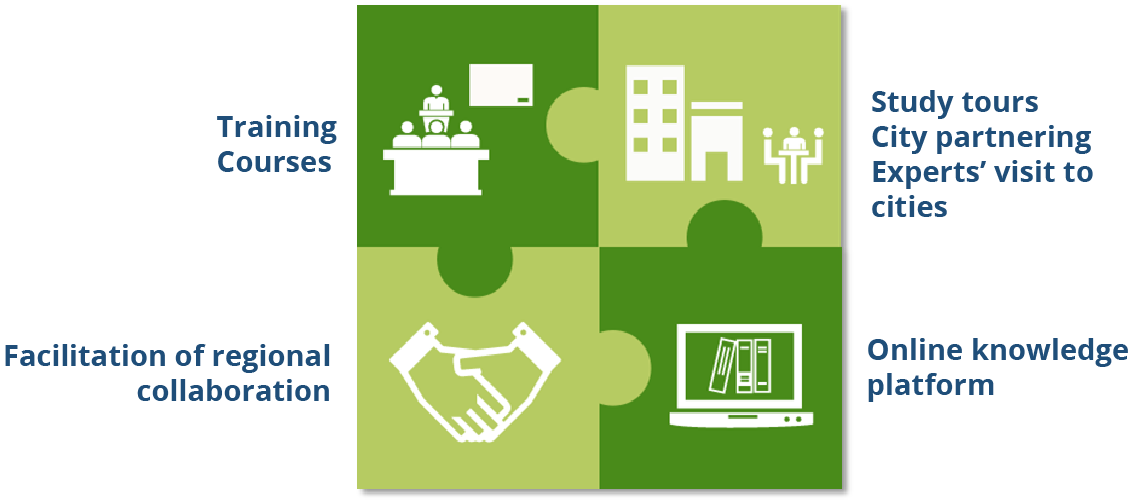The Integrated Programme for Better Air Quality in Asia (IBAQ Programme) is addressing the growing challenge of air pollution in Asia and is directly contributing to the development of healthier and more livable cities throughout the region. The IBAQ Programme, launched in July 2014 by Clean Air Asia and the Ministry of the Environment of Japan, is focused on improving the air quality management capacities of cities with the goal of effecting broader change.

Organization and Partners
The Guidance Framework, the core of the IBAQ Programme, is a voluntary and non-binding framework organized around key areas of air quality management in the region: ambient air-quality standards and monitoring; emissions inventories and modeling; health and other impacts; air-quality communication; clean air plans; and governance.
Developed in consultation with environment ministries, experts, and air-quality management stakeholders, the Guidance Framework maps out the steps and actions to be taken by national and local-level policymakers and decision-makers to improve air quality.
PROGRAMME COMPONENTS
Program Implementation and Capacity Building
The IBAQ Programme supports countries and cities throughout Asia in using the Guidance Framework to improve urban air quality. Pilot countries include China, Indonesia, Mongolia, the Philippines and Viet Nam. This component also involves the provision of assistance to pilot cities in addressing priority air-quality-management work areas.
The following activities will help to improve the capacity of stakeholders to implement the measures elaborated in the Guidance Framework:

Technical Assistance for PM2.5 Monitoring
This component involves the provision of a PM2.5 monitoring station, which forms part of the Acid Rain Deposition Monitoring Network in the East Asia Region, and air quality monitoring technical assistance. Initial cities to be provided with support include Hoa Binh (Viet Nam), Mandalay (Myanmar), Ulaanbaatar (Mongolia) and Jakarta (Indonesia).
Program Impact Assessment
This component monitors the impact of the IBAQ Programme throughout its implementation and across a number of related areas, including the knowledge base, policy and technology changes, improved air quality, and other co-benefits
Communication and Awareness Raising
This component includes such activities as the development of the IBAQ Programme website and other communication tools to raise awareness about the programme and its key activities and interventions.